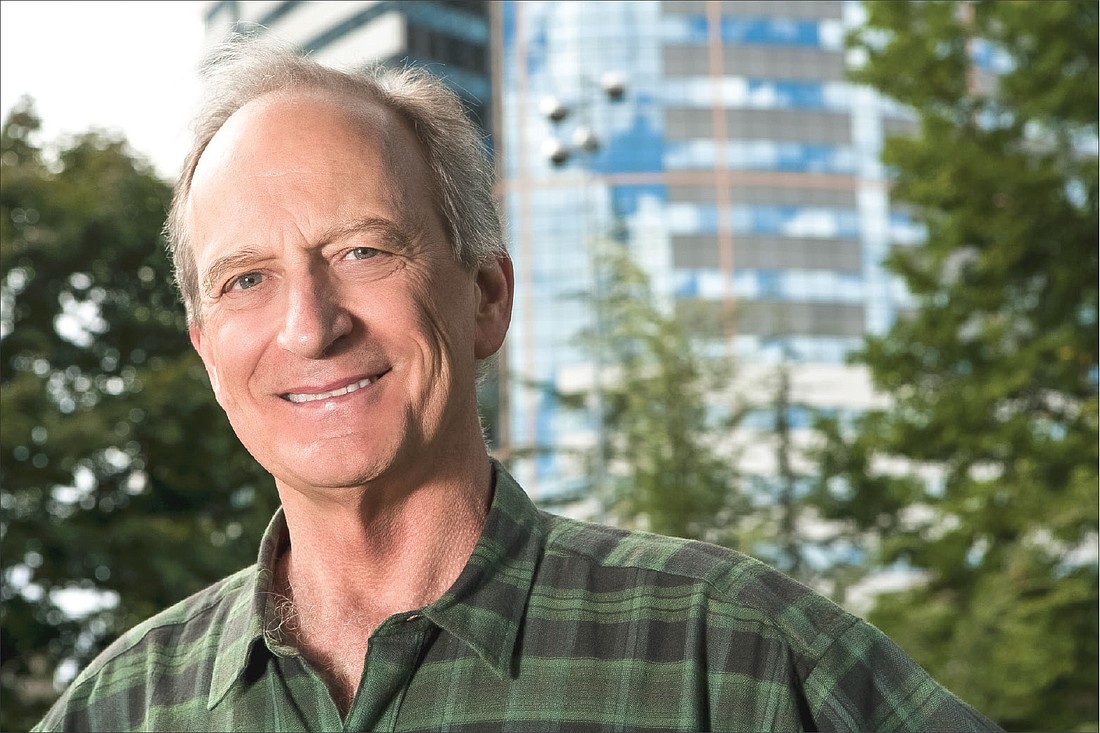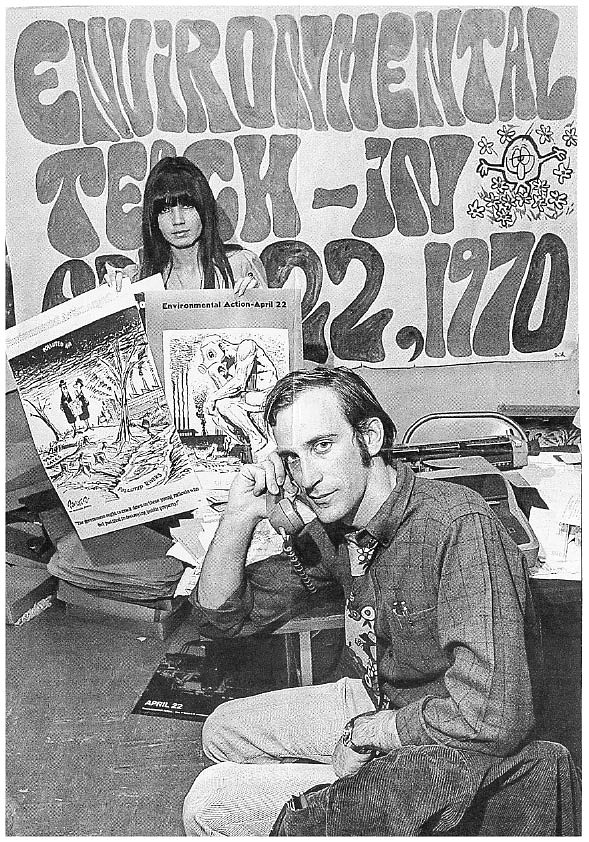Earth Day Turns 50
March 1, 2020 at 8:07 p.m. | Updated March 7, 2022 at 12:00 a.m.
By Adam Conley
In honor of the 50th Anniversary Celebration of Earth Day on April 22, this article has been updated from the original, published in the April 2014 edition of Northwest Prime Time.
It’s not often you meet someone who says they face each day excited about the work that lies before them. So it is with Denis Hayes, prominent environmental activist, national coordinator of the first Earth Day and president of the Seattle-based Bullitt Foundation since 1992.
“I have the gigantic good fortune to get up in the morning and work on something I care about,” proclaims Denis with infectious enthusiasm.
To engage Denis Hayes in conversation is to enter into his world for a moment and become inspired by the many things that clearly light his fire. This articulate, intelligent, thoughtful man speaks with passion and conviction that both compels and energizes.
The Hayes family moved from Espinola, Ontario to Camas, Washington in 1950. It was here, growing up a stone’s throw from the banks of the Columbia River, that Denis began to cultivate a love for nature and the outdoors.
Denis’ father made his living at the local paper mill as was the case with most men of that time and place. Denis recalls his father held hardworking, conservative values. He also possessed a certain stoic pride in his role as the operator of paper machine No. 10, which was responsible for producing paper that wrapped frozen food products.
To Denis’ father and the rest of the town, the sulfur dioxide and other chemical pollutants thrown off by the paper mill were tolerated as “the smell of prosperity.” As Denis recalls, nobody at the time realized the inordinate amount of rust and corrosion destroying their automobiles was the same stuff they were breathing. In addition to premature deaths associated with the pollution, most working men were deaf by the age of 50 or 55 due to the thunderous noise from the equipment they worked with at the mill.
“For the first seventeen years of my life,” recalls Denis, “I had a nagging sore throat.” However, this did not stop him from hopping on his bike to explore the surrounding Columbia River Basin or hiking through the nearby forests. Denis remembers exploring green verdant forests, only to be suddenly disoriented by stumbling across a clear-cut wasteland, or “moonscape” in his parlance, that had been sacrificed to feed the mill. “[The mill was] a great digesting machine, continually devouring the forests we’d go hiking in,” he explains.
Denis remembers a happy childhood growing up in Camas. The 40 mile round-trip bicycle ride to the Beacon Rock area of the Columbia River was, and continues to be, one of the most beautiful natural spots in the world to Denis.
One of many pivotal moments in his life took place in 1961 as a junior at Camas High School (now named for him). Denis enrolled in an ecology seminar where he read Eugene Odum’s classic text Fundamentals of Ecology. This planted the seed that shaped Denis’ values and continues to make a global impact on the relationship humans have with this blue and green globe we call home.
As his teenaged years unfolded into adulthood, Denis spent two years at Clark Community College before deciding to hitchhike around the world. A feverish bug for adventure and world travel had fully settled in.
After failing to get a job on a ‘round-the-world cargo ship, Denis managed to secure a $99 passage on a vessel headed to Hawaii. He lived the carefree life of a Waikiki surfer for a while and worked as a disc jockey at KNDI radio station in Honolulu.
Eventually, Denis managed to get himself to Japan, where his ‘round-the-world adventure continued. With savings amassed over the summer, Denis, at age 20, began a hitchhiking odyssey that took him all over the world. He has visited over 140 countries in his lifetime.
Denis traversed places that today would be unthinkable for their instability and threat to Americans. But in the mid-1960s, it was possible to travel just about anywhere in the world, including countries behind the Iron Curtain. Denis spent time in Eastern Europe, even train-hopping as far as Siberia on the Trans-Siberian Railway, and hitchhiked through the Middle East.
He then made his way down the West Coast of Africa. “I wanted to experience all the different parts of the world,” exclaims Denis, “and I must honestly confess that most of what I found in developing nations was quite depressing.”
But it was in Southwest Africa, a place that is now called Namibia, that Denis experienced a second pivotal, life-changing experience. Indeed, this moment might be defined as a kind of crucible that forged the Denis Hayes we now know, giving him clarity of purpose for how he would spend the rest of his life.
There is a certain timeless beauty to the details of this story that could belong to the mystics and sages of any age. He was out in the middle of the desert and alone. The night sky was clear and encrusted with stars, brilliantly illuminating everything. Denis was very hungry and as darkness set in, so did a deep chill. At a precise moment in Denis’ memory, a wave of something deep and profound passed through his body. He believes he was experiencing an epiphany—a realization that there must be a way to look for and identify certain organizing principles that explain the world.
“I began to wonder what it would be like if we began to bind ourselves to the principles of ecology,” reflects Denis. He stayed up all night, alive with a buzzing energy and awareness more powerful than his hunger or cold. As the sun rose in the eastern sky, Denis quite simply declares, “I knew what I wanted to do with the rest of my life.”
Remarkably, he applied to only one university, Stanford, and was accepted. He was drawn there by influential academics connected to the university at that time: the eminent biologist and professor of population studies Paul Ehrlich and Don Kennedy, who later became president of Stanford.
When he entered Stanford, Denis was convinced he was coming back to make a real and meaningful impact. He became deeply politically active. He was elected student body president and was involved in the anti-war and civil rights movements.
Denis knew he wanted to apply his new-found principles to better the world we live in and decided on the influential spheres of law and government. Upon graduating from Stanford, he applied to Harvard University. He was selected to enroll in what is of what is now called the Masters in Public Policy program at Harvard’s Kennedy School of Government.






